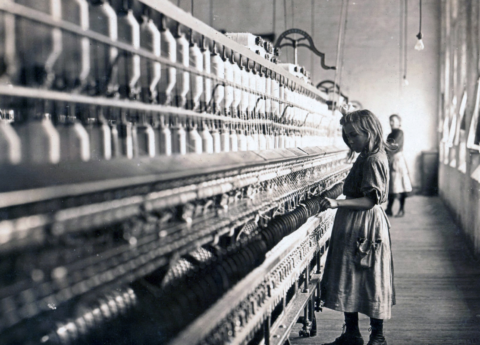On Labor Day many Kentuckians pause from their daily responsibilities to celebrate the contributions workers make to our state and our nation. But today also gives cause to reflect on the substantial challenges Kentucky workers face: four years after the official end of the Great Recession, too many people are without jobs, wages are stagnant or even in decline and rising inequality is hurting our economy, communities and politics.
The jobs picture remains grim. When you factor in job growth that is needed to catch up with population growth over the last six years, Kentucky has gained back substantially less than half of the jobs necessary to recover from the recession. And looking at raw job numbers can be overly optimistic, in part because more than 20 percent of Kentucky workers in part-time jobs would rather be in full-time work, but can’t find it.
What’s more, many of the jobs that are available don’t pay enough for families to get by. And with so much available labor, employees have little bargaining power for higher wages. In inflation adjusted dollars, wages fell across the board between 2001 and 2012, earning the label “the lost decade” for American workers.
In 2012, Kentucky’s low-wage workers at the tenth percentile saw their inflation-adjusted wages fall 1.5 percent; their wages have fallen 6.5 percent since 2001. At the median, wages went down 2.8 percent in 2012 and have declined 7.1 percent since 2001. That means less money in Kentuckians’ pockets for back-to-school supplies, groceries, car repairs and the upcoming holidays.
Kentucky workers have not only lost ground compared to where they were a decade ago, but also compared to the national median wage: in 2001, the median Kentucky worker made 95 cents to each dollar the median American worker brought home, but in 2012, that number had dropped to just 90 cents.
While low- and middle-income workers are seeing their living standards erode, the wealthiest Kentuckians are doing quite well. Between the late 1970’s and the mid-2000s, the average real income of the poorest fifth of Kentucky households fell by 11.8 percent, while the average income of the richest fifth of households grew by 61.7 percent. The last few years have magnified this trend: a record share of corporate income is going to profits instead of being shared equitably with workers.
Meanwhile, Congress is contributing to the shrinking middle class and harming the economy by cutting funding for Head Start, social assistance programs, public schools and more, at the same time it preserves some of the most costly tax cuts and loopholes for the wealthy and for corporations. In the last few years, Washington became wrongly obsessed with immediately cutting the deficit, which is already down to sustainable levels in the short- and medium-term.
There are clear policy solutions to our economic problems: Congress should be making short term investments in infrastructure; providing resources to plug the holes in state and local budgets for schools, human services and more; strengthening the safety net while times are still tough; and increasing the federal minimum wage. By directly creating jobs and the demand necessary to speed up job growth for the economy as a whole, these policy solutions offer a way forward.
This Labor Day, Kentucky workers are ready for new opportunities. But first they need Congress to change its course.
Published in the Lexington Herald-Leader on August 30, 2013.



